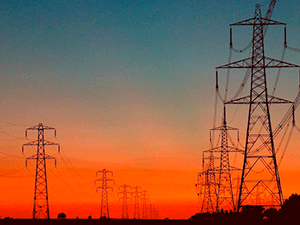
[miningmx.com] – ESKOM will consider entering into joint ventures or selling certain units from its generation fleet in an effort to make its operations more sustainable.
“We are looking within the generation stable [as to] what is possible,’ said Zola Tsotsi, Eskom chairman. “We don’t have a difficulty if we can have the kind of joint venture partnership with outsiders who buy a stake or equity into our operations.”
He was commenting in an interview with Miningmx for its Mining Yearbook 2014 due to be published with the Financial Mail on June 20.
“It will be a part equity solution in that we would offer an existing operation to someone who would like to invest because we believe there is merit in looking at some of the assets from that perspective,” said Zola.
“We would not have the entire generation fleet up for equity acquisition. We would not do that,” he said.
“In other words, we would not ring-fence the generation business and say: look is there any equity participant who would like to come in with us on the generation side; rather, it would be on a project-by-project basis on specific units and specific plants.”
Eskom’s relationship with the private sector has been ambiguous at best over the years.
The development of the so-called “tied-mines’ where power installations were established in proximity to colleries which exclusively supplied Eskom on a cost plus basis has been criticised by former Eskom CEO, Brian Dames.
Owing to the fixed margin nature of the business, mining companies often operated these facilities at below optimal efficiencies.
In another part of the interview, Tsotsi said Eskom had managed the process of agreeing long-term contracts with coal suppliers badly.
Commenting on an agreement with Exxaro Resources which is to supply Eskom’s 4,750MW Medupi power plant, Tsotsi said: “There are very few people in this building who have any real knowledge of what the agreements are.
“I certainly don’t have it; I don’t know the board has, but I suppose it hasn’t come to question yet simply because the unit is still under construction. We don’t have the foresight to start to say: well, let’s look at that and see what, in fact, we would do”.
The contract has, however, had an effect already on Eskom. The delays at Medupi have resulted in Exxaro Resources successfully pressing home a take-or-pay agreement in which Eskom has paid the mining firm R1.6bn in its 2013 financial year with another R1.6bn due to be paid in the current year.
A perception is that coal producers don’t work for Eskom in its efforts to keep the South African economy growing; that they serve foreign shareholders at the expense of their role as corporate citizens.
The cost of coal to Eskom has increased about 20% on a compounded average growth rate (CAGR) basis since 2005 owing to mining cost inflation. The cost to produce a tonne of coal alone has increased 12% CAGR – itself a function of productivity losses and wage increases.











